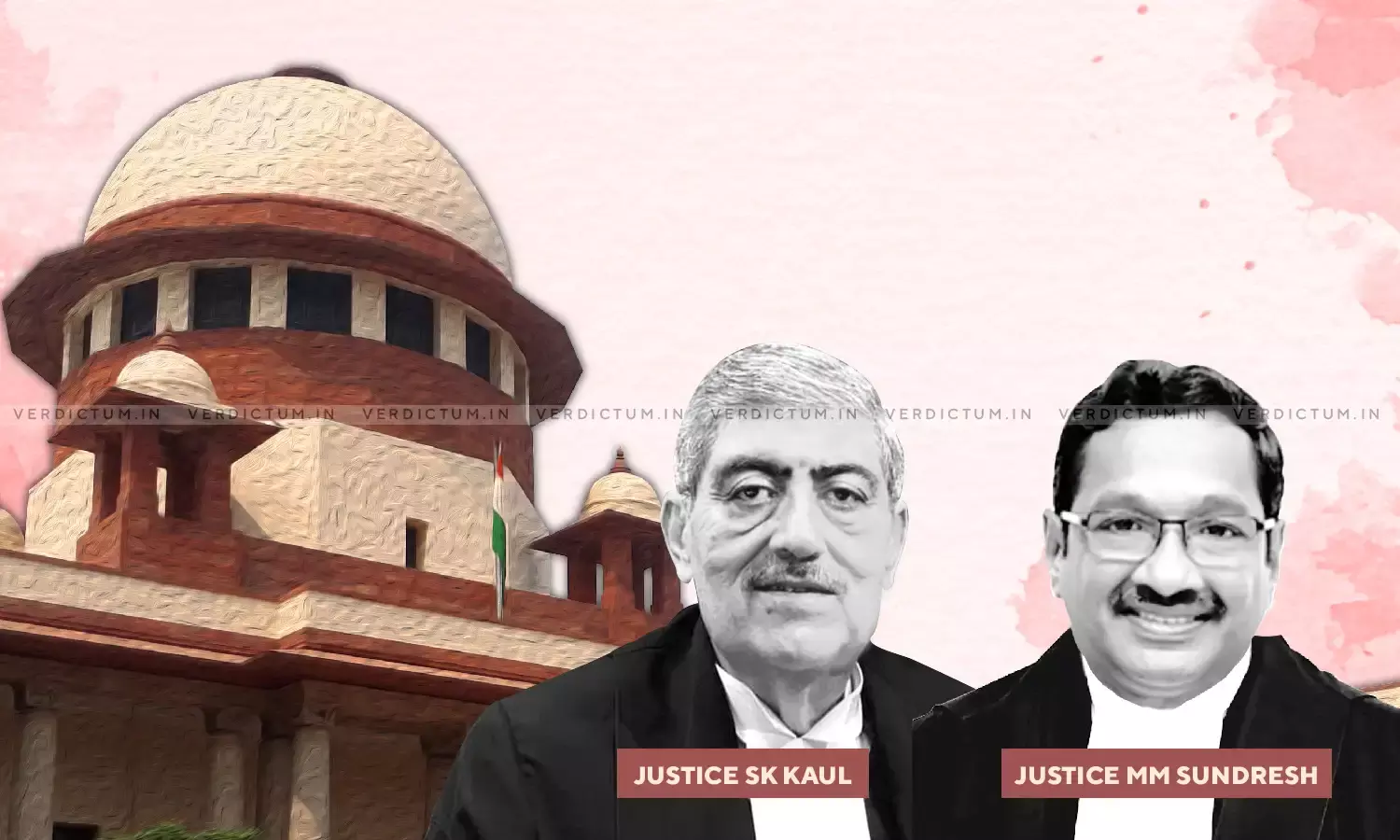Statement In Favour Of Accused By Prosecution Witnesses Not Declared Hostile Would Inure To Accused's Benefit- Supreme Court
Statement In Favour Of Accused By Prosecution Witnesses Not Declared Hostile Would Inure To Accused's Benefit- Supreme Court
The two-judge bench of Justice M. M. Sundresh, and Justice Sanjay Kishan Kaul overturned life imprisonment into acquittal awarded in a murder case.
"No attempt whatsoever was made either to treat them as hostile or to re-examine them except that of PW10. Not even a suggestion was put to them on the presence of PW15. In such a scenario, the statement made by the prosecution witnesses in favour of the accused would certainly inure to his benefit", the Court held.
The Court also held that the Prosecution had failed to establish beyond reasonable doubt that the Appellant committed the offence, thereby acquitting the accused.
Facts & History of the Case
The deceased was allegedly murdered by the Accused/Appellant and the co-accused. Charges were filed under Section 302 read with Section 34 of IPC. The Trial Court convicted the appellant and the co-accused. While the co-accused did not challenge the conviction and carried out his sentence, the Appellant herein approached the High Court.
The High Court rejected the appeal, holding up the life imprisonment awarded to the Accused/Appellant by the Trial Court.
Challenging the dismissal by the High Court, the Accused has approached the Supreme Court via special leave.
Ms. Nitya Ramakrishnan, appearing on behalf of the Accused/Appellant highlighted the several inconsistencies that occurred during the Trial –
- The eye witness not placing the Accused in the scene of offence.
- The main witness' statement not being corroborated by the prosecution witnesses.
- The Investigation Officer stating he did not prepare the recovery memo under Section 27 of the Indian Evidence Act.
- Prosecution contradicting the FSL (Forensic Science Laboratory) Report.
Ms. Ankita Choudhary, Deputy Advocate General representing the State argued that the defective trial and inconsistency in statements of the Prosecution Witnesses would not absolve the Accused of his guilt and that there is sufficient evidence to implicate the Accused.
The Bench observed that – "Both the courts shifted the burden on the defence. The evidence rendered by the prosecution witnesses was rejected, either as that of indifferent witnesses or as irrelevant evidence"
Relying on Raja Ram v. State of Rajasthan, (2005) and Javed Masood v. State of Rajasthan, (2010) the Bench noted that no attempt to treat the prosecution witnesses as hostile or to re-examine them being made, their statements made in favor of the Accused would certainly injure the benefit of the Prosecution.
On considering the submission made by the Counsels, the Bench expressed that the evidence of the Prosecution Witnesses being unreliable and the recovery not being proved in a manner known to law, coupled with inadequate evidence on record to implicate the Appellant, the Prosecution has failed to prove beyond a reasonable doubt, that the Appellant has committed the offence.
In light of the facts and circumstances of the case, the Apex Court acquitted the accused and allowed the appeal.
Click here to read/download the Judgment












